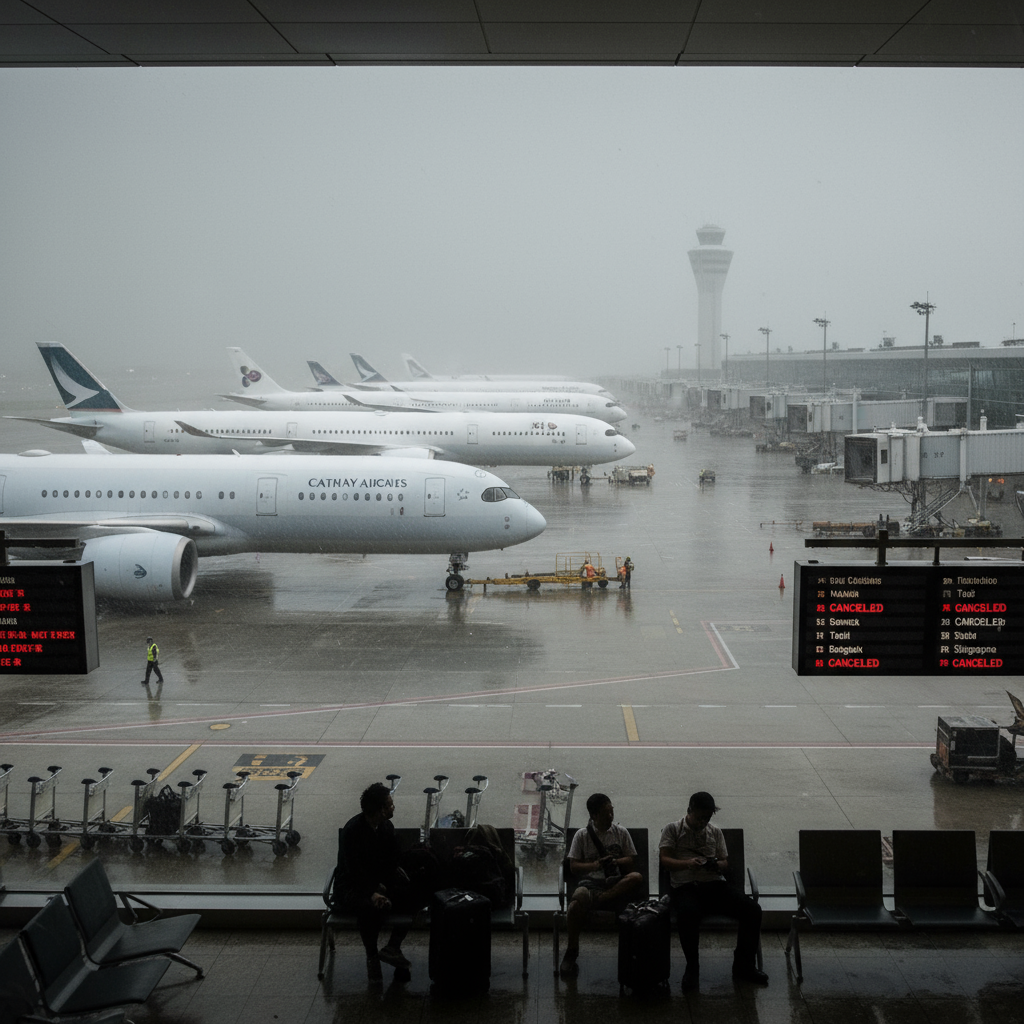Physical Address
304 North Cardinal St.
Dorchester Center, MA 02124
Physical Address
304 North Cardinal St.
Dorchester Center, MA 02124
Global aviation news tracker
Global aviation news tracker

Typhoon Ragasa has grounded hundreds of flights across Hong Kong and Southeast Asia, leaving travellers facing cancellations and long delays.
Airlines including Cathay Pacific, HK Express and Thai Airways suspended services as the storm hit the region, with operators cancelling or re-timing hundreds of flights. Hong Kong International Airport sharply reduced scheduled movements while carriers worked through rebooking and passenger care plans. In Taiwan and the Philippines, major schedule disruptions and temporary suspensions of services were reported.
Hong Kong saw some of the earliest operational impacts, with the airport authority cutting arrivals and departures to limit exposure to severe winds and heavy rain. Low-visibility periods and crosswind concerns prompted airlines to delay or cancel flights rather than risk unsafe operations. In Taiwan and the Philippines, domestic and international routings were affected as airports closed runways or paused service ahead of the worst weather.
The storm is forecast to weaken after making landfall in China and is expected to track toward northern Vietnam, reducing intensity over the next day as it moves inland. Even as Ragasa loses strength, residual rain, gusts and disrupted air traffic flow mean ripple effects will persist in schedules for 24–48 hours after the worst conditions pass. Passengers should expect delays even on flights that remain scheduled.
Travelers affected by cancellations should prioritise safety, monitor official statements from airlines and airports, and use online rebooking tools where available. For complex itineraries, calling the airline or working with a travel agent may resolve connections faster than waiting at the airport.